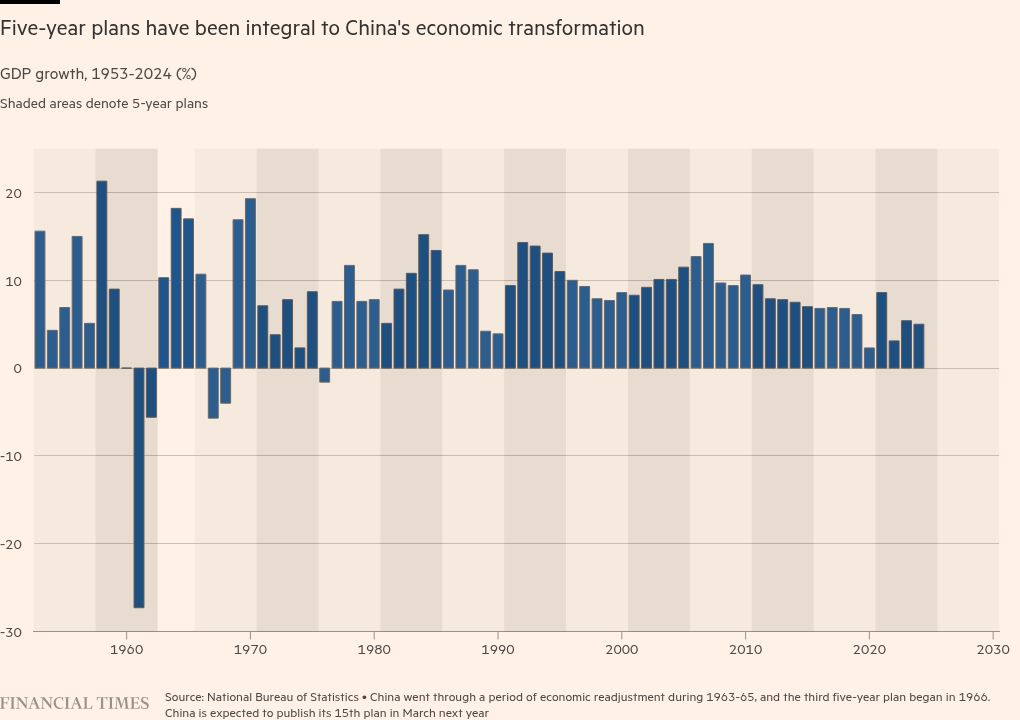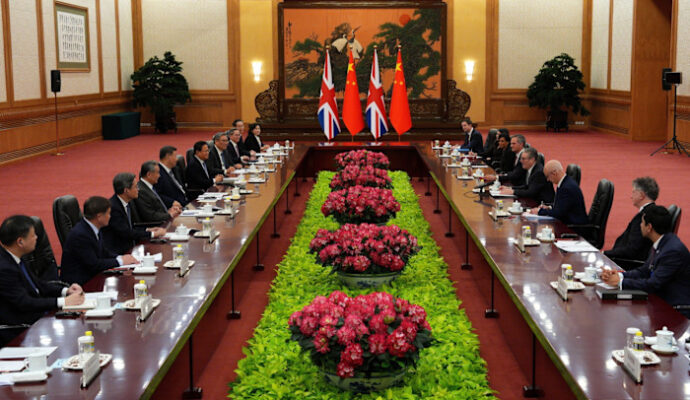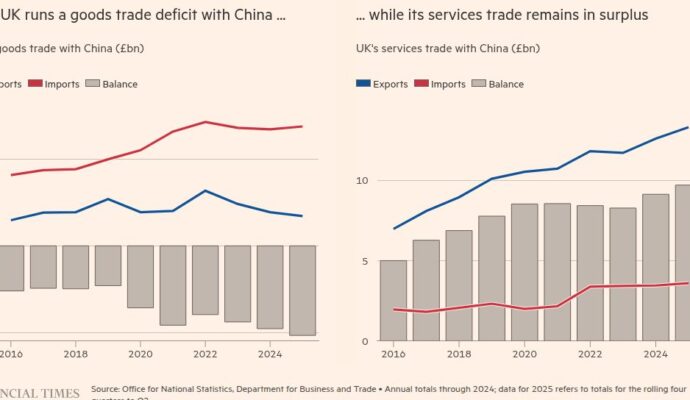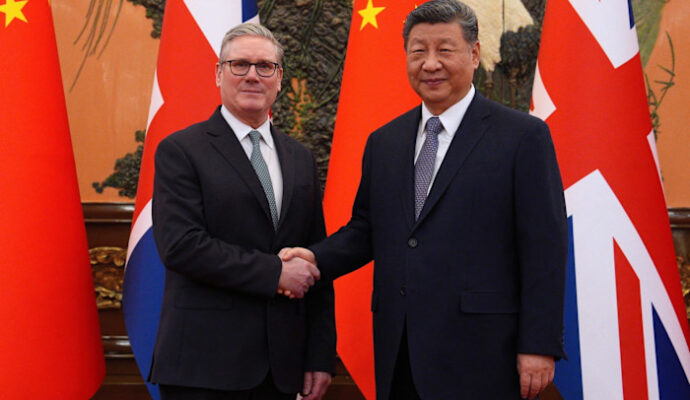This article is an on-site version of our FirstFT newsletter. Subscribers can sign up to our Asia, Europe/Africa or Americas edition to get the newsletter delivered every weekday morning. Explore all of our newsletters here
Good morning, happy Friday and welcome back to FirstFT Asia. In today’s newsletter:
We start with the Chinese espionage drama unfolding in the UK. Beijing has condemned evidence released by Sir Keir Starmer from an alleged Chinese espionage case, denouncing “British politicians’ attempts to smear and defame China”.
What to know: The Chinese embassy in London warned the UK government yesterday that it should “stop undermining China-UK relations” after Starmer released witness statements from his deputy national security adviser in the high-profile case. The statements detailed the UK’s evidence against two British men accused of spying on MPs for Beijing. The case collapsed last month, triggering a row over whether Starmer undermined the prosecution to avoid tensions with China.
Go deeper: Beijing’s broadside came after the head of MI5, Ken McCallum, said he was “frustrated” by the collapse of the prosecution in his first public remarks about the affair. Meanwhile England’s former director of public prosecutions told the FT that witness statements drafted for the prosecution of two men over allegations they spied for China were “more than adequate” to use at trial.
Here’s what else we’re keeping tabs on today:
Economic data: Malaysia publishes advance third-quarter GDP and Singapore reports non-oil domestic exports.
Trump-Zelenskyy meeting: The US president is expected to discuss potential sales of US-made Tomahawk missiles to Kyiv with his Ukrainian counterpart Volodymyr Zelenskyy at the White House.
Results: Reliance Industries reports earnings.
How well did you keep up with the news this week? Take our quiz.
Five more top stories
1. The US Department of Justice has indicted John Bolton, Donald Trump’s former national security adviser, in the latest legal blow against a critic of the president. The charges by the Maryland US attorney’s office yesterday related to Bolton’s handling of classified documents. “I think he’s a bad person,” Trump told reporters. Read the full story.
2. Trump said Indian Prime Minister Narendra Modi promised that his country would stop buying Russian oil, in a move that could help ease trade tensions between the two nations. Here’s how New Delhi responded.
3. Private equity groups Carlyle and Boyu Capital are the leading contenders to acquire a majority stake in Starbucks’ China business, as the US coffee chain seeks a local partner to help steer it through an increasingly competitive market. A valuation for Starbucks’ full China business likely to come in at about $4bn, excluding royalties, which are still being negotiated. Here are more details.
4. Big investors are cutting back their exposure to riskier corporate debt. Asset managers including BlackRock, M&G and Fidelity International have shifted towards safer corporate or government bonds, in response to a big decline in US credit spreads that means investors get little reward for taking extra risks.
5. Shares in US regional banks fell yesterday after two lenders disclosed that they were exposed to alleged fraud by borrowers. The disclosures by Western Alliance Bank and Zions Bank follow the recent failures by car parts maker First Brands and auto lender Tricolor, which have left credit investors nursing losses and are under scrutiny from the US Department of Justice. Here’s more on the regional bank worries.
FT Investigation
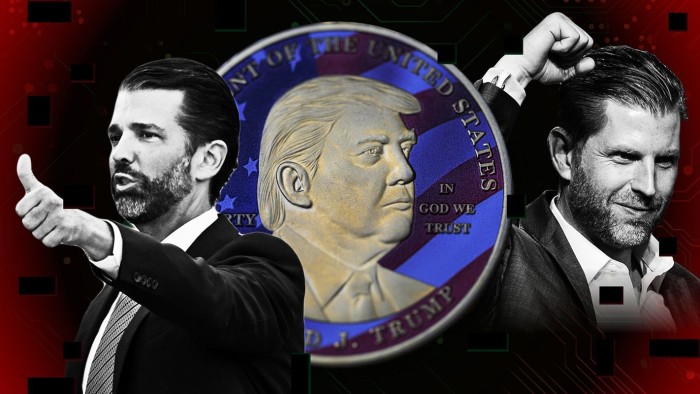
US President Donald Trump and his family have built a rapidly growing digital assets empire over the past year. This has been fuelled by a boom led by the administration’s industry-friendly policies. In the first of a two-part series, FT reporters unravel how Trump companies made $1bn from cryptocurrency.
We’re also reading . . .
Hong Kong’s domestic workers: Estranged from the city’s broader economic and social life, domestic helpers carve out a space for themselves in makeshift fashion markets.
AI bubble threat: The global economy can survive Trump’s tariffs, writes Alan Beattie, but a collapse in AI will be a harder shock to endure.
Gen Z revolts: Youth-led protests in Madagascar ended in a military coup, following a wave of student protests in Bangladesh, Nepal and Kenya.
Chart of the day
Hundreds of China’s top political cadres will next week lock themselves away in a Beijing hotel for four days to map out the country’s next five-year plan — the blueprint for everything from the economy and trade to society and culture. These plans can seem arcane to the outside world but FT reporters explain why they are still so important to Beijing.
Take a break from the news . . .
After almost being wiped out after the second world war, wolves are making a comeback to Europe. In the forests west of Stockholm, Kate Maxwell and her daughter Lyra enrol in a wolf-spotting adventure in pursuit of “the shyest of creatures”.

